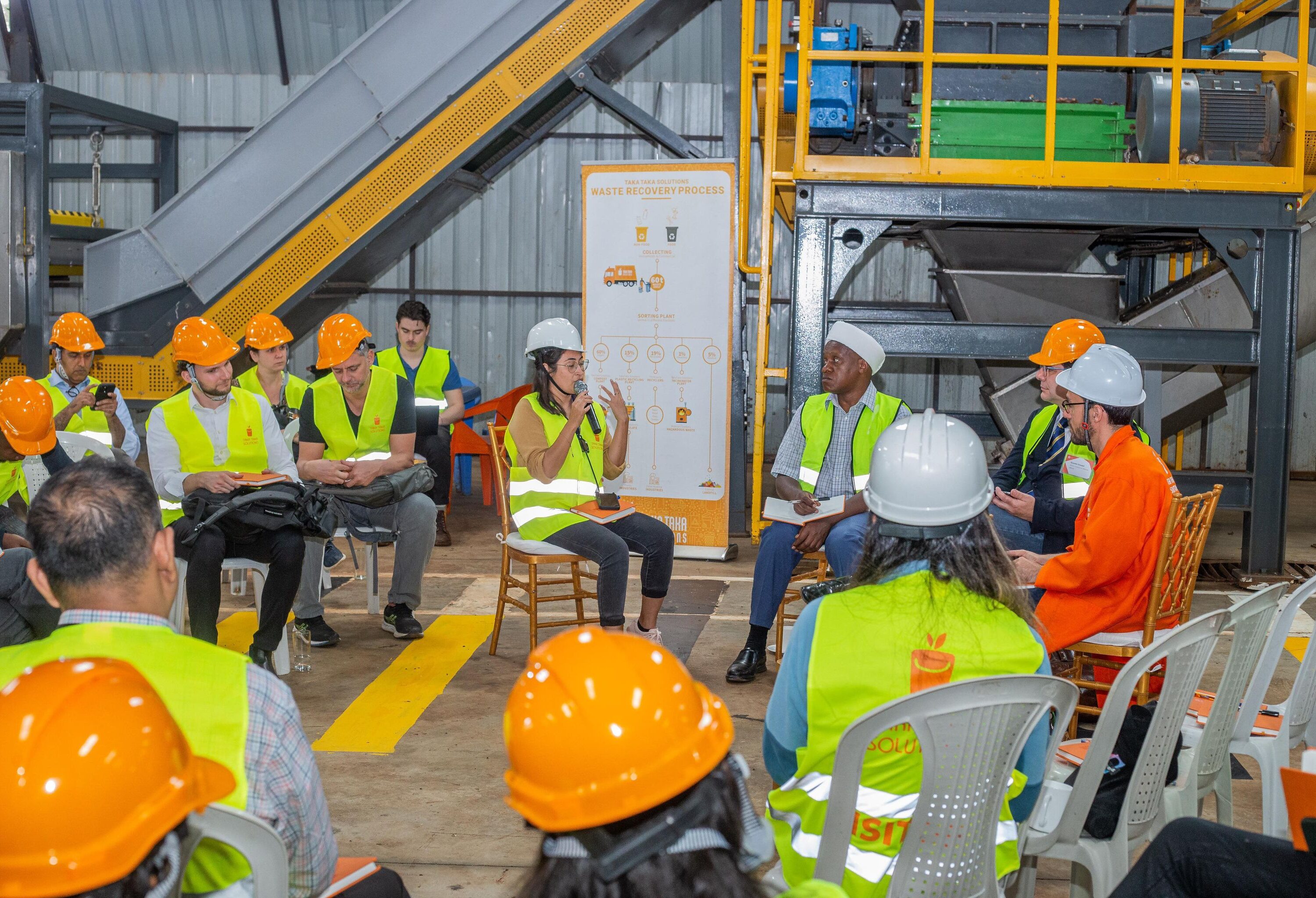

Higginson Strategy joined Earth Action at the INC-3 negotiations for the UN Global Plastics Treaty in Nairobi, Kenya last week. This marked the third round of negotiations between country delegates, NGOs, scientists, and industry lobbyists. During the sessions, discussions focused on inter-session progress and building upon the ‘Zero Draft’ treaty created during INC-2 in Paris.
We were proud to support Earth Action with hosting a range of events throughout the week that focused on how a future UN Global Plastics Treaty can foster global circularity and ultimately put an end to the plastics crisis.
This included an evening reception for Plastic Footprint Network members and partners, a participatory roundtable discussion and tour held at TakaTaka Solutions in collaboration with South Pole and WBCSD and a multistakeholder consultation supported by rePurpose Global on how outcomes-based financial mechanisms in waste management can be enhanced.
Later in the week, our client the Plastic Health Council presented the Health Scientists’ Global Plastics Treaty in the Kenyan capital. As an alternative to the UN’s ‘Zero Draft’, the treaty was written by leading health scientists and emphasises the impact of plastic on human health. It seeks to create legally binding instruments to limit the inclusion of toxic chemicals in plastics and eliminate the production of single-use plastic products. Higginson Strategy was proud to amplify this call for delegates to listen to the scientists and protect the health of future generations.
Unfortunately, INC-3 closed with frustrating results, as no targets, baselines, schedules or reporting mechanisms were agreed on. The dominance of 143 fossil-fuel industry lobbyists continued delays for much needed elaboration on treaty foci established at previous UN sessions.
However, the outstanding effort of many countries, including the High Ambition Coalition (HAC), to support measures to address plastic waste reduction by creating alternative solutions throughout the ‘plastic life cycle’ is extremely promising. The call to introduce worldwide, universal limitations on plastic production and pollution, rather than regulations that allow for state-by-state implementation and interpretation, serves as a reminder of the progress being made by those participating in these negotiations. The leadership shown by the Small Island Developing States and the Africa Group demonstrates sustained efforts to implement radical change and create a legally binding agreement.
We look forward to seeing the progress made at the following INC-4 taking place in Ottawa, Canada this coming May. The Global Plastics Treaty will be the first of its kind and will create global precedence for tackling plastic pollution.
Plastic, at every stage, is detrimental to the environment and human health. We urge treaty participants and stakeholders to seek a comprehensive, universal treaty to tackle this global crisis.
